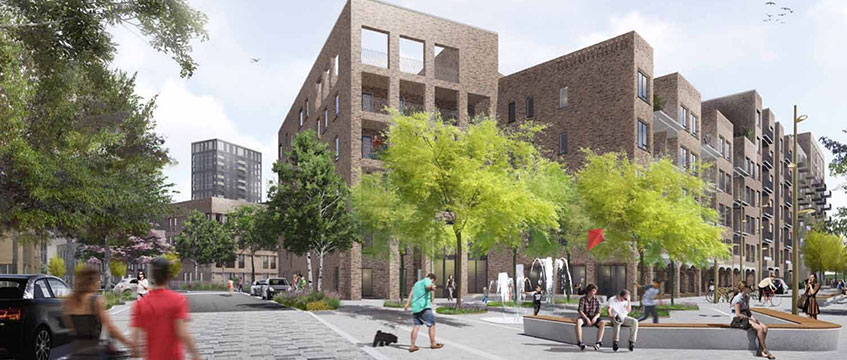A High Court planning ruling about Southwark’s Aylesbury Estate development is, according to experts, likely to add further uncertainty for developers engaged in large, long-term development projects.
Housing association Notting Hill Genesis, on behalf of Southwark Council, is part-way though a regeneration project replacing the south London housing estate, built between 1967 and 1977, with more than 4,000 new homes.
While the project will increase social housing in the borough, it is opposed by some former residents who don’t want to move and consider the plans to be “gentrification”. One such resident, Aysen Dennis, has won a court challenge to the development that is likely to cause headaches across the planning sector.
In a ruling handed down yesterday (17 January), High Court judge Mr Justice Holgate quashed a 2023 amendment to the outline planning permission, granted in 2015, that described the project as “severable”.
The amendment was significant because it was intended to address recent planning judgments that make it procedurally difficult to deviate from previously granted planning permissions.
Developers engaged in large developments in a number of phases over long periods of time have, in recent years, used so-called “drop-in” applications to modify and adapt the development’s initial planning permission. It is a convenient tool that provides flexibility to complicated projects.
This practice was curtailed just over a year ago when the Supreme Court ruled in the Hillside Parks case (Hillside Parks Ltd v Snowdonia National Park Authority [2022] UKSC 30; [2023] EGLR 4). The judges reaffirmed an earlier case, called Pilkington (Pilkington v Secretary of State for the Environment [1973] 1 WLR 1527), and ruled that any changes to an existing planning permission cannot “materially” depart from the existing permission, thus limiting the scope of drop-in applications.
In this case, the developers had sought to make the 2015 planning permission “severable” as a legal tool to deal with this by making it clear that the project was intended to be a multi-phase development that might require changes between phases.
However, in yesterday’s ruling, the judge ruled that this addition was itself a material departure from the 2015 permission and should therefore be deleted.
“This is a significant decision,” said David Wood, a senior associate in the planning department at Hogan Lovells, in an interview.
It is “almost inevitable” that large building projects that run over years, and sometimes decades, will need to make changes to their initial planning permissions to take into account new technology, new requirements and changed circumstances.
“The industry was getting more comfortable about how to deal with Pilkington and Hillside Parks, particularly within the context of drop-in applications, and this judgement raises added uncertainty,” he added. “It is the latest in a long line of rulings that makes this issue knottier.”
Notting Hill Genesis may have to “go back to the drawing board” to work out how it is going to get permission for any deviations from the masterplan, he said.
One option, suggested by the judges in Hillside Parks, could be for the developer to apply for an entirely new planning permission, which would add work, uncertainty and time to the project.
Wood said that, increasingly, developers are, at the outset, seeking planning permissions that explicitly state that the project will be phased to take alterations into account.
However, this ruling is likely to worry developers and local authorities who are part-way though large schemes that began before recent judgments curtailed drop-in changes.
R (on the application of Dennis) v London Borough of Southwark and another
[2024] EWHC 57 (Admin), Planning Court (Mr Justice Holgate) 17 January 2024










